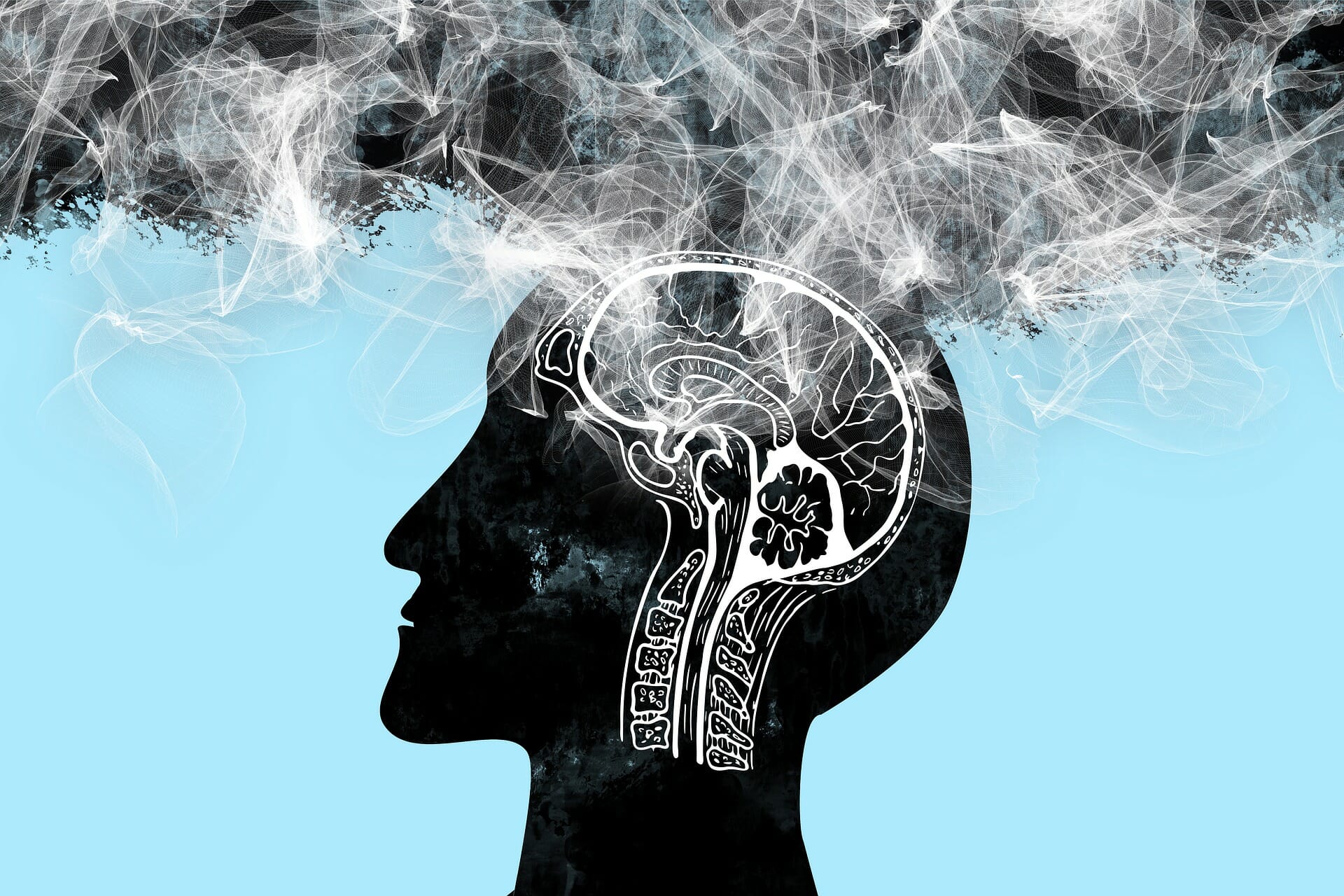Introduction to Ginkgo Biloba and Cognitive Decline
Ginkgo biloba is a popular herbal supplement that has been used for centuries to treat a variety of ailments. Recently, it has been studied for its potential to help with cognitive decline, such as dementia and mild cognitive impairment (MCI). Studies have shown that Ginkgo biloba extract (EGb 761) may have a protective effect against age-related cognitive decline, as well as a beneficial effect on cognitive performance in MCI. A randomized clinical trial of elderly people with mild to moderate dementia found that two doses of Ginkgo biloba extract (EGb 761) had a positive effect on cognitive performance.
A systematic review and meta-analysis of randomized trials of the Ginkgo biloba extract (EGb 761) for elderly people with dementia and age-associated memory impairment found that the extract had a beneficial effect on cognitive outcomes. The review also found that Ginkgo biloba extract (EGb 761) had a protective effect against cognitive decline associated with aging, as well as a therapeutic effect on dementia with neuropsychiatric features. The study also found that Ginkgo biloba extract (EGb 761) had no adverse effects on cognitive function in the elderly.
Benefits of Ginkgo Biloba for Age-Related Cognitive Decline
Ginkgo biloba has been studied extensively for its potential to reduce age-related cognitive decline. A number of studies have found that ginkgo biloba extract can help to reduce the rate of cognitive decline in older adults, as well as improve cognitive function in those with dementia and cognitive impairment. For example, a randomized controlled trial investigated the effects of ginkgo biloba extract in dementia and cognitive impairment without dementia in elderly adults.

The study found that ginkgo biloba extract was associated with a significant improvement in cognitive state, as measured by the mini-mental state examination. Additionally, a review of the effects of ginkgo biloba extract on cognitive aging found that ginkgo biloba extract was associated with a significant improvement in cognitive scores in a number of cognitive domains, including memory, global cognitive, and cognitive ability.
Furthermore, a ginkgo evaluation of memory study found that ginkgo biloba extract was associated with a significant reduction in the risk of cognitive decline and dementia in older adults. These findings suggest that ginkgo biloba extract may be beneficial for reducing the risk of dementia and cognitive decline in older adults.
Potential Side Effects of Ginkgo Biloba
Ginkgo biloba is a popular herbal supplement that has been used for centuries to treat a variety of ailments. It has been studied for its potential to improve cognitive function and reduce the risk of developing dementia and Alzheimer’s disease. Recent studies have shown that ginkgo may be beneficial for elderly people, as it can improve activities of daily living, cognitive impairment and dementia, and vascular dementia.
In a study of the efficacy of ginkgo for elderly people, a number of participants were given ginkgo for a period of six months. The results showed that there was a change in cognitive function, with a significant improvement in instrumental activities of daily living and long-term cognitive deficits. Additionally, there was a decrease in the incidence of dementia and cognitive impairment at baseline, as well as a decrease in the risk of developing dementia. Furthermore, the study showed that ginkgo had pharmacological effects associated with the aging process, as well as hemorheological effects and microcirculatory modifications following treatment. These findings suggest that ginkgo may have cognitive enhancing properties, and may be beneficial in the prevention of cognitive decline and memory decline.
How to Take Ginkgo Biloba for Age-Related Cognitive Decline
Taking ginkgo biloba for age-related cognitive decline is a popular choice for many people. It is a natural supplement that has been used for centuries to help improve cognitive function. Studies have shown that ginkgo biloba can help improve memory, focus, and concentration in people with age-related cognitive decline. It can also help reduce the risk of developing Alzheimer’s disease and other forms of dementia.
When taking ginkgo biloba for age-related cognitive decline, it is important to follow the recommended dosage. Studies have shown that taking ginkgo biloba for at least six months can help improve cognitive function and reduce the risk of developing dementia. It is also important to note that ginkgo biloba may not be effective in treating all forms of dementia, such as vascular dementia and dementia of the Alzheimer’s type. However, it may be beneficial in treating mild cognitive impairment and vascular cognitive impairment. Additionally, ginkgo biloba may help improve cognitive test scores and reduce the decline in cognitive function that is observed in some people with age-related cognitive decline. Therefore, it is important to speak with your doctor before taking ginkgo biloba for the treatment of dementia or mild cognitive impairment.
Other Natural Remedies for Age-Related Cognitive Decline
Age-related cognitive decline is a common problem among the elderly, and it can be a difficult one to treat. Fortunately, there are a number of natural remedies that can help. For instance, studies have shown that regular physical activity can help reduce the risk of cognitive decline, as well as improve cognitive function in those who already have it. Additionally, a healthy diet rich in antioxidants, omega-3 fatty acids, and B vitamins can help protect against cognitive decline.

Herbal remedies such as ginkgo biloba, ashwagandha, and bacopa monnieri have also been studied for their potential to treat mild cognitive impairment and dementia with neuropsychiatric symptoms.
While the results of these studies have been mixed, some have shown that these herbs can help improve cognitive function and reduce the rate of cognitive decline.
Additionally, some studies have found that certain supplements, such as vitamin E, can help slow the progression of Alzheimer’s disease and other forms of cognitive dysfunction. While these natural remedies may not be a cure-all, they can certainly help to reduce the risk of cognitive decline and improve cognitive function.
Conclusion
The research conducted by et al. has shown that Alzheimer Disease (AD) is a progressive disorder that can cause cognitive change. Treatment of Mild Cognitive Impairment (MCI) is important in order to prevent further decline in cognitive functioning. The study found that when MCI was treated, a decline in cognitive functioning was observed. However, when treatment was not provided, normal cognitive functioning was maintained. This suggests that treatment of MCI can be beneficial in preventing further decline in cognitive functioning. Additionally, the study found that treatment of dementia with neuropsychiatric medications can be beneficial in improving cognitive functioning. This suggests that treatment of dementia with neuropsychiatric medications can be beneficial in improving cognitive functioning and preventing further decline. In conclusion, the research conducted by et al. has shown that treatment of MCI and dementia with neuropsychiatric medications can be beneficial in improving cognitive functioning and preventing further decline.

FAQ’s:
Q1. What is Ginkgo Biloba and how can it help with age-related cognitive decline?
A1. Ginkgo Biloba is an herbal supplement that has been studied for its potential to help with age-related cognitive decline. Studies have shown that Ginkgo Biloba may help improve cognitive function and reduce the risk of Alzheimer’s disease.
Q2. What kind of cognitive change was observed in the study of Ginkgo Biloba?
A2. The study of Ginkgo Biloba showed that there was a significant improvement in cognitive function, with a decline in age-related cognitive decline being observed.
Q3. Is Ginkgo Biloba an effective treatment for mild cognitive impairment?
A3. Studies have shown that Ginkgo Biloba may be an effective treatment for mild cognitive impairment. It has been shown to improve cognitive function and reduce the risk of Alzheimer’s disease.
Q4. Is Ginkgo Biloba effective in treating dementia with neuropsychiatric symptoms?
A4. Studies have shown that Ginkgo Biloba may be effective in treating dementia with neuropsychiatric symptoms. It has been shown to improve cognitive function and reduce the risk of Alzheimer’s disease.
Q5. Does Ginkgo Biloba help to restore normal cognitive function?
A5. Studies have shown that Ginkgo Biloba may help to restore normal cognitive function. It has been shown to improve cognitive function and reduce the risk of Alzheimer’s disease.



 Ginkgo Biloba As An Antioxidant
Ginkgo Biloba As An Antioxidant
